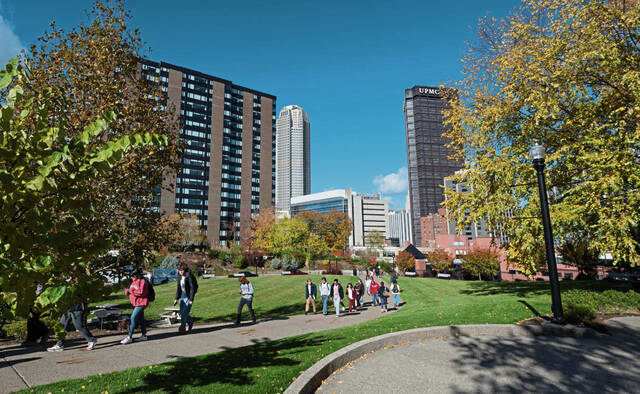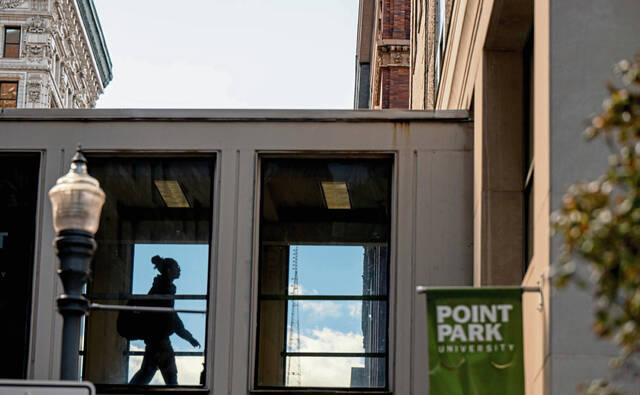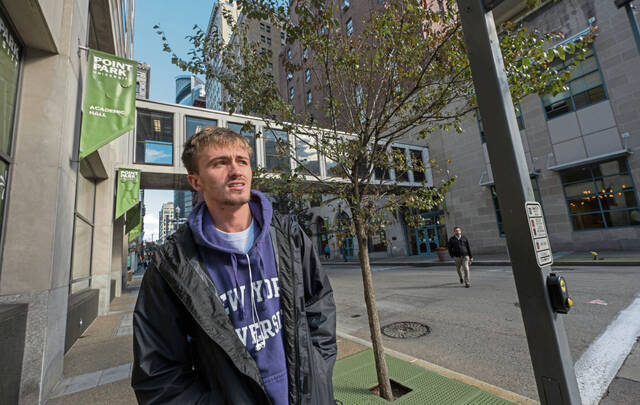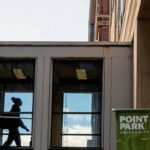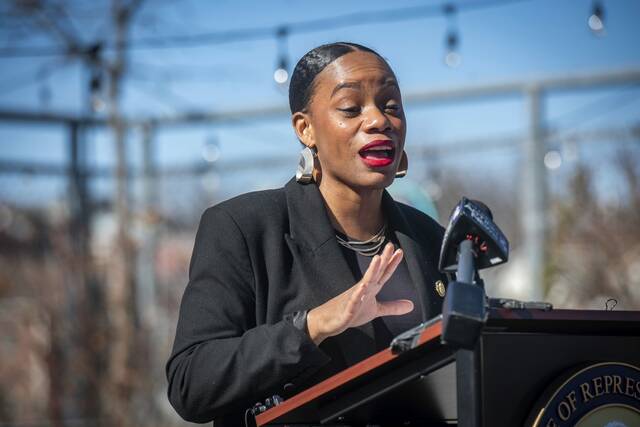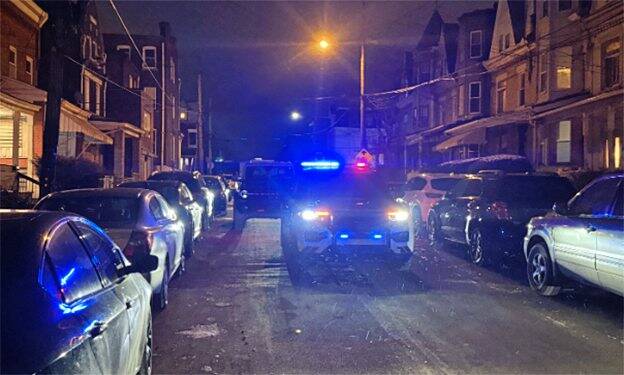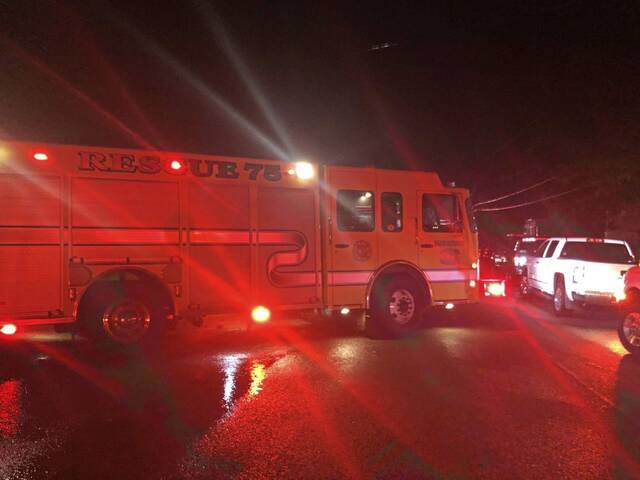Joel Bauman has been involved in college admissions for 30 years, and he can’t remember a more challenging time than what he faces today.
“It has become more cynical,” said Bauman, senior vice president for enrollment management at Duquesne University, “but you can’t blame families, given the financial situation.”
Colleges from public to private find themselves in a fight for students who are growing increasingly wary of escalating tuition costs and, as a result, are beginning to question the value of higher education.
Making matters worse, the pool of potential students is forecast to dwindle over the next decade and a half. Declining birth rates have Pennsylvania projected to see a 17% drop in high school graduates by 2041, a steeper decline than the national average, according to the Western Interstate Commission for Higher Education.
“If you look over time, in the 1990s and 2000s, there was such strong support for higher education,” said Joni Finney, director of the University of Pennsylvania’s Institute for Research on Higher Education. “Now I think support is soft.”
‘Can’t test drive a college education’
The doubts about college are showing in some polls.
About two-thirds of Americans surveyed by Gallup in September rated a college education as only “fairly important” or “not too important.”
About one-third said college was “very important.” That’s down from 2019, when 53% of respondents in a Gallup poll said it was very important. It’s almost a complete reversal from 2010, when 75% said it was very important.
The percentage of those surveyed who view college as “not too important” has more than doubled since 2019. For perspective, that number was just 4% in 2010.
Finney points to the cost of college as a reason for lower confidence in higher education.
“Colleges have priced with impunity,” she said. “Tuition keeps going up and up.”
This year, Penn State increased tuition by 2% for in-state undergraduates attending the main campus, to about $10,400 per semester or about $20,900 annually. At Pitt, the average list price for tuition for two terms for most in-state students is about $21,000, and $41,700 for out-of-state students. The State System of Higher Education, for the first time in seven years, increased tuition for in-state students by $139 per semester to nearly $4,000, with full-year tuition increasing to about $8,000.
The more things cost, the more people question the return on investment, said Michael May, Slippery Rock University’s vice president for enrollment management. Despite that, Slippery Rock’s enrollment this fall has increased by nearly 3% — its highest jump in three years.
“Slippery Rock has done a really good job not only describing a purpose of higher education but also communicating to our families and answering common questions before families have to ask,” May said.
Polling often doesn’t match the reality on campuses.
Eva Schumacher, a second-year student at Duquesne, said the cost of college was concerning, but financial aid has been a big help.
Attending college was something Schumacher was set on doing: During her senior year at Pittsburgh Allderdice High School, she took a forensic science course and loved it. She’s now in Duquesne’s Forensic Science and Law program, a five-year master’s program.
“Every job now requires a degree,” said Schumacher, 19, of Bloomfield. “It’s only going to help me.”
She has no reservations about her decision to attend college.
“I feel like it’s a really good program to be in. I’m really getting something out of the community I’m in,” she said. “Everyone is trying to help me to be the best I can.”
The return on a college investment is holding.
Lifetime earnings are higher for someone with a bachelor’s degree compared to someone with only a high school diploma, May said. The national median salary for 25- to 34-year-olds with a bachelor’s degree is $66,000 per year, according to the National Center for Education Statistics. It’s $42,000 for someone with only a high school diploma.
Duquesne tries to educate families early in the admissions process to understand costs and the value of college, Bauman said.
“You can’t test drive a college education,” he said. “It’s a question of educating families and figuring out how to make that work.
“The sensitivity to the cost is almost universal.”
Colleges need to communicate the real costs better to students and families, Finney said.
“We’ve got to be a lot more transparent,” Finney said. “If families can’t pay for it, how can the gap be made up? Can students have a meaningful work experience? Can they borrow a loan without having to go to a bank? Or can it be forgiven and the repayment is based on the income you earn in the first 10 years?”
Innovate to the times
If public opinion about the importance of college is down, there hasn’t been a recent correlation to enrollments at some local colleges.
Pitt’s main campus in Oakland reported a 4% increase in student enrollment this fall, and numbers remained steady at branch campuses in Greensburg, Bradford, Johnstown and Titusville. The Pittsburgh campus received nearly 65,000 first-year applications — a record — for fall 2025.
“When Pitt staff talk to prospective students, they do so with students already interested in attending college and specifically interested in Pitt,” university spokesman Jared Stonesifer said. “And when we talk to them, we tell them that the value of a Pitt degree has never been higher, thanks in part to our 96% postgraduate placement rate and recent designations like being named a ‘New Ivy’ by Forbes.”
Duquesne also had its most freshman applications this year — more than 13,000 — and welcomed more than 2,600 undergraduate and graduate students this fall.
Bauman believes the open and transparent dialogue with prospective students and families is working, and also pointed to “demographically resilient programming” that the school on the Bluff is undergoing — including opening a College of Osteopathic Medicine last year and launching a real estate major next fall.
“At the core of it, we’re making sure academics are meeting the market,” Bauman said. “All of that strategy allows us to weather the cynicism more effectively than maybe some other schools.”
Colleges connecting students with real-world experience can showcase their importance, Finney said. Students want to make sure they can obtain a job after they complete their degree.
“Higher education hasn’t been very clear about linking the college experience to employment,” Finney said. “We need to do more internships and do more things that get students to have on-the-job training while they’re earning a degree.”
That was a draw for Jordan Kullen, 21, a senior in the sports, arts, entertainment and music program at Point Park University.
“I was encouraged to do whatever I wanted,” said Kullen, of Conneaut Lake. “I went to trade school in high school and graduated with a certificate in electrical occupations.
“After getting a job at a warehouse, that’s when I realized I didn’t like that plan and wanted to go to college instead. I understand that works for a lot of other people, but I had other interests.
He believed attending school in Downtown Pittsburgh would offer more opportunities and experiences, and that has been borne out. Point Park has connections with major sports teams in Pittsburgh, Stage AE and the University of Pittsburgh, Kullen said.
“The bread and butter of Point Park is getting the real-life experience,” he said. “The whole thing at Point Park is getting hands-on experience, and that’s 100% the case.”
Bauman believes Duquesne has made strides to prove that. He cited a third-party study of alumni that found 75% who said their Duquesne experience prepared them to enter the job market, 83% who said their college experience shaped their professional success and 90% who said Duquesne helped prepare them to be an ethical decision-maker.
Among recent graduates in the past six years, 89% said they experienced real-world learning and 97% said someone at Duquesne got them excited about learning, Bauman said.
Divides
While public perceptions may vary, college still is generally seen as important. But the level it’s seen as important is changing, May said.
Additionally, different polls take away different findings: A Vanderbilt University poll released last month found nearly half of American adults surveyed said they had a “great deal” or “quite a lot” of confidence in higher education.
Having a college degree is necessary for Christian Sullivan, a Duquesne senior studying music education. He has aspirations of becoming a teacher.
Sullivan, of Richmond, R.I., said he was able to obtain a full ride at Duquesne, which helped relieve the stress and concerns of finances. Attending college was worth it, he said.
“I’m on my way, for sure,” Sullivan said. “I don’t think I would be where I am today without having gone to college.”
Upward trends for college perception may be on the horizon: A September survey of high school seniors from the Art and Science Group found 81% of all prospective students indicate obtaining a bachelor’s degree is worth it.
“I certainly think it’s going to grow,” May said. “Higher education needs to understand, it’s on us to be able to document and experience and be transparent with the value and experiences we are providing to students, and the costs associated with those.
“Data shows a four-year college degree is a very worthwhile investment that pays for itself quickly.”


